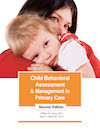
How does temperament help to shape
our personality characteristics?
Temperament influences our interaction with the environment.
Different interaction = different experiences.
Temperament refers to behavioral style, the 'how' of behavior. Personality describes 'what' a person does or 'why' they do things. Long recognized as different, researchers have investigated connections
between the biological aspects of behavior seen in temperament, vs. personality structure and development.
Currently, one of the most popular personality theories is the Big Five theory of Paul Costa and Robert McCrae. Based on repeated factor analysis of personality traits, these authors have
concluded that personality is comprised of five universal dimensions: Extroversion, Agreeablness, Neuroticism, Openness, and Conscientiousness. They believe that these five factors can be
found in self-ratings of personality in youngsters as soon as they are able to rate themselves, and remain invariant through adulthood.
Temperament researchers have been looking for links between the factors identified as temperament and the 'Big Five' factors, in both adults and children. In particular Rothbart's
questionnaires have been shown to correlate with personality characteristics, opening up new avenues of inquiry. Rothbart's research has demonstrated significant links to four of the
Big Five personality traits, based on her temperament dimensions of orienting sensitivity, effortful attention, extraversion and negative affect. Only the personality characteristic of
Agreeablness failed to correlate significantly with one of the temperament scales.
Many other studies have been conducted, of course, including an increasing body of European research led by Gedolph Kohnstamm, Ivan Mervielde and Berit Hagekull. In the United States, temperament
researchers Charles Halverson and Roy Martin have published both theoretical and empirical papers on the temperament-personality connection. Temperament and personality are clearly related,
but not the same thing, based on both conceptual and empirical grounds. The links are there, but have yet to be completely understood.
Identifying the temperament qualities that affect the development of personality in infancy and early childhood is also a significant question. Fewer studies have looked at this topic,
which seeks to understand how temperament in a preverbal child unfolds into personality characteristics in toddlerhood, childhood and eventually adulthood.
To determine your own adult temperament qualities, go here.
To learn how temperament is assessed in infancy and childhood, go here.











